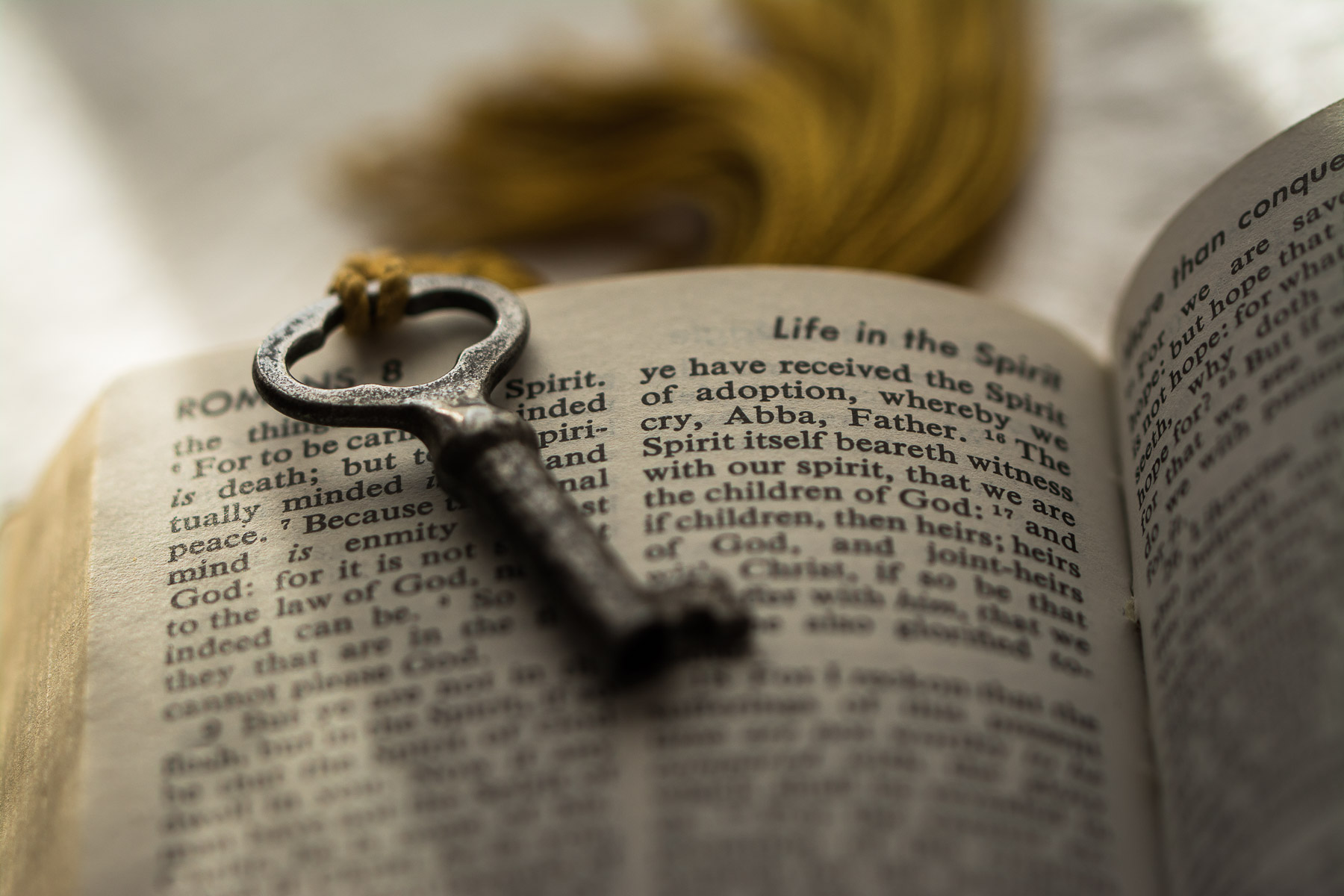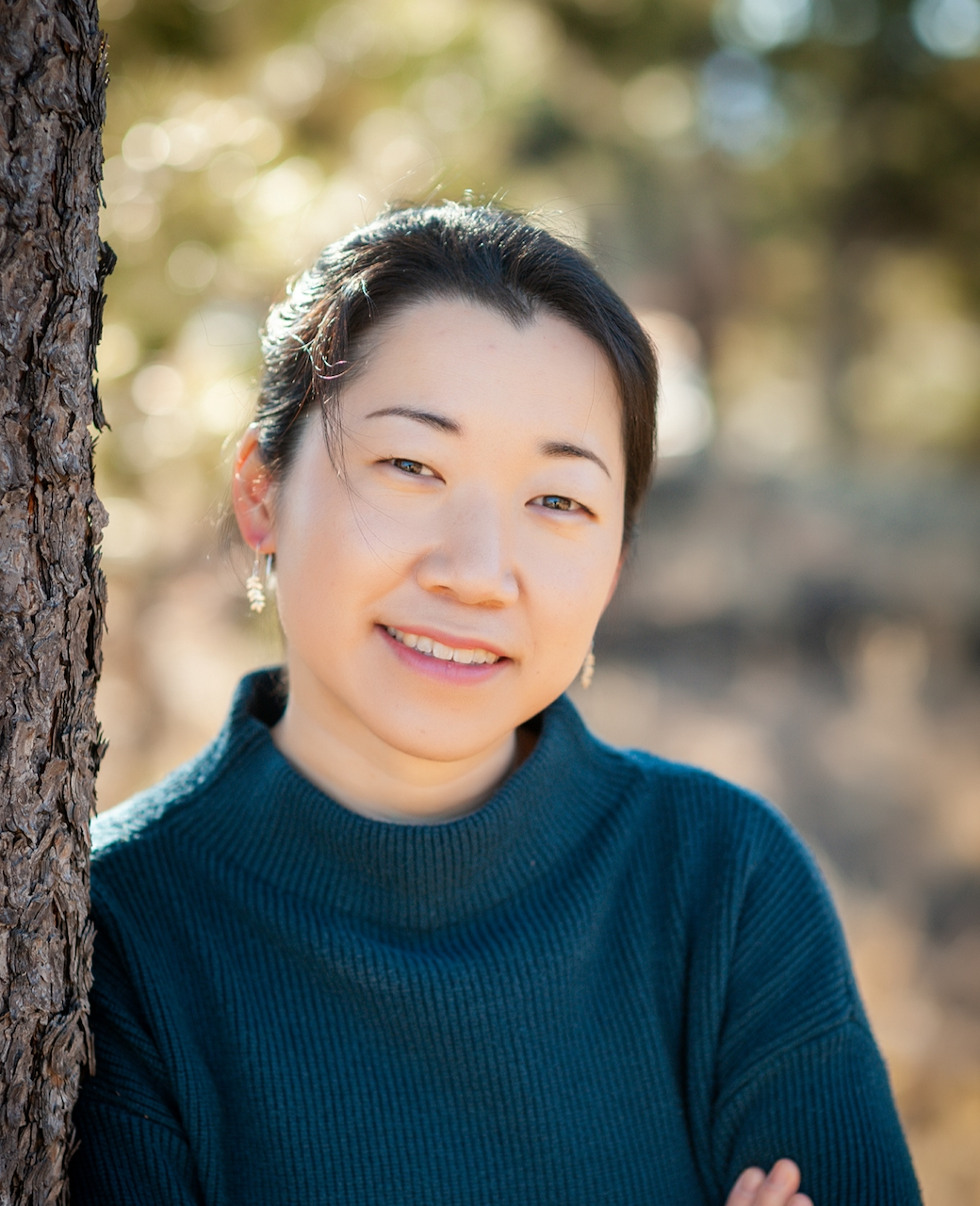Author’s Note: During the pandemic I read a news article about a woman who, in the midst of postpartum depression, took her baby’s life and her own. My heart broke for her as I read her husband’s description of her spiraling journey, because I know that darkness and the story it tells. This essay is a shot back at the choking lies it spreads in our day about inevitable catastrophe and inescapable failure.
A series of books about natural disasters once stood on my childhood bookshelf—books about tornadoes, hurricanes, volcanoes, and the like. Invariably these books started with sentences like this: “The morning of May 18, 1980 dawned bright and clear.”
As I read my way through them, it didn’t take long for me to be suspicious of picturesque serenity. In those books, blue skies were a pretty dependable sign that a fence post would soon be driven through the heartwood of a tree trunk at the speed of a hundred miles per hour. Similar reflexes arose from other books I read; in Lurlene McDaniel novels, bruises and bleeding gums were always a sign of childhood leukemia. Reading encourages the synthesis of information and the recognition of patterns, and I did a stellar job at paying attention; I noted the way storekeepers taped up glass windows in preparation for hurricanes, and brought bruises on my knees to my mother’s attention.
A couple of decades later, I find that little has changed. But the cautionary narratives I encounter are no longer confined to slim chapter books and novels; they are everywhere.
To give an example, I live in a country where people often raise awareness of a cause after a loved one’s death. This response is not wrong. In our economy and society, funding is fueled by public awareness, and so we raise the alarm about furniture falling on top of children and the first signs of various diseases in the hope of averting future disasters for others.
But more and more, I’ve come to wonder what happens on the receiving end of these stories. If there are 56 new campaigns or foundations started in a given year, where do those infomercials, medical newsletters, and personal anecdotes land?
For the listener who is tuned in, there are 56 new ways to die. It isn’t that we have made up 56 novel ways to be killed—they already existed—but now we are aware of 56 more ways in which a life can end.
Add up the numbers over a lifetime of exposure, and the effect is formidable, especially considering that in the end each of us will die of one cause, with perhaps a handful of concurrent conditions.
And the phenomenon of widespread warning is not limited to the field of health; it strikes wherever anything can go wrong—in legislation, at school, in churches, in relationships, in neighborhood watch communities, etc.
My own mind often runs on these cautionary rails, swaying uneasily as it crosses gulches of probable disaster each day. Recently I lost sleep for about a week as I watched over an infection in one of my children. In situations like this one, I’m coming to realize, I have too many stories to choose from as to how things might end, peppered into my memory over decades.
“It was the first warning sign…”
“Little did the parents know…”
“Had they not trusted their instincts and driven to the hospital…”
“The congregation was unaware…”
“No one knew what was going on behind closed doors…”
They haunt me like wraiths, these lines. One slip in my vigilance, and we will fall through the cracks into an unwanted tale.
“The morning of May 18, 2023, dawned bright and clear.”
According to the narration of our broken world, life is a game of chance and probability. The merciless plot twists in my life will surely follow ones that have gone before, and things are always in danger of ending up as they did for that person, this featured article, those bullet points at the end of the doctor’s printout. I am repeatedly presented with the temptation to assess my story before I’ve finished living it.
In the 2006 film Stranger Than Fiction, protagonist Harold Crick discovers that he is the main character in a novel that is being written, and for a time he keeps a little notebook with tally marks under “Comedy” and “Tragedy” to see if he can figure out what kind of tale he is in. In the face of uncertainty, I have to admit I end up doing much the same thing in my mind. What kind of life am I living? How will it end? What story will it tell? No aspect of my life is free from this speculation: marriage, parenthood, writing, church life, friendship, and so on.
On my most difficult days, down a dozen different imagined pathways, I or a member of my family dies ignominiously from some 21st century version of drowning while fording a river, succumbing to cholera, or starving because we could only drag a hundred pounds of meat back to our wagon. Our relationships unravel. Our careers and spheres of service disintegrate. We become a byword to those who shake their heads over sorrow and catastrophe.
Not every day is a harrowing one, however, and honesty obliges me to mention other details. Just today, I made a child laugh. Spring songbirds stopped by our garden; I prepared a meal from vegetables and chicken that bore an astonishing array of colors, from citrine to violet; we prayed for people whose lives and situations we could do very little to help—except through this unfathomable means of intercession. These suggest a different story than the harder times imply.
Brokenness and beauty take turns dominating my days, and I do my level best to avert crises when the former seems to be winning. I tape up all the breakable windows of my life and hope to pull the trajectory upward.
But if I’m really going to assess the story I’m living, one significant data point outweighs all of the gray and golden clues and all of my efforts:
Our stories—mine and yours—have already been significantly tampered with.
The Author of All Creation is no mercurial being, and looking to Him tells us what we may expect from each one of our lives. “Whoever is wise, let him attend to these things; let them consider the steadfast love of the LORD” (Ps. 107:43, ESV). He is a God who says to a devastated city: “I will not forget you. Behold, I have engraved you on the palms of my hands…” (Is. 49:15b-16a, ESV).
In weakness and illness, loss and grief, when dire endings swarm our imaginations, we can begin again here and remember this: the course of our narrative once took an unmistakable bent toward brokenness and certain defeat, and the Author entered our story to upend its direction. To ensure our triumph of life over the shackles of death.
He has caught up our chapters and made them indelible within His story, in which the thread of His glory and His nature runs sure and true. If there is any story that we can regard as the pattern after which ours will run, this is the one.
In this story, the Author has come down into the world of His making, and has promised never to leave you until the very last word on the very last page of this chapter has come to pass. Even if the worst that this world can forecast occurs. I don’t know what this has the potential to look like individually in the 7.88 billion lives that live and breathe today. I still bend my own weighted head on many an evening praying for a dreaded outcome to pass us like a ship in the night. But I know that because of what He has already done, you and I may ask freely and expectantly for help in the most unlikely hours, and for manna on our most depleted days.
He will not drop a single one of your tears, and when you are too exhausted to be sensible to His presence, still He will bear you up. Patiently and gently He will walk with you through “all the days ordained for [you that] were written in [His] book before one of them came to be” (Psalm 139:16b, NIV). He will finish what He began.
And then He will turn the page.
The Light of the World will shine across the aurum pathways and dappled riverbanks of a garden city, leading His people to springs of living water, refreshing your sight as He wipes away every tear from your eyes. Stories will flow from tongues and instruments and lines of poetry that tell of a goodness too immense to be contained and a beauty too deep for eternity to spell out, and we will pay close attention again to every variation offered to us, but only so that we may catch every steady jot and trembling note of joy. We will look back at the lines and verses we once lived, and see anew the steady hand of a King who never left us to the whims of chance—the hand in whose palm we were always held.
Don’t give up, friend. The morning is about to dawn bright and clear.
And this time, it will ever endure.
![]()
The featured image is courtesy of Julie Jablonski and used with her kind permission for Cultivating.
Amy Baik Lee is a contributing writer for Cultivating Magazine and the Rabbit Room, a literary member of the Anselm Society Arts Guild, and the author of This Homeward Ache. A lifelong appreciator of stories, she holds an MA in English literature from the University of Virginia and still “does voices” when she reads aloud. She writes at a desk that looks out on a small cottage garden in Colorado, usually surrounded by her husband’s woodworking projects, her two daughters’ creative works, and patient cups of rooibos tea.
Leave a Reply
A Field Guide to Cultivating ~ Essentials to Cultivating a Whole Life, Rooted in Christ, and Flourishing in Fellowship
Enjoy our gift to you as our Welcome to Cultivating! Discover the purpose of The Cultivating Project, and how you might find a "What, you too?" experience here with this fellowship of makers!


Your writing is so incredibly beautiful and encouraging. Thank you for sharing your gift, and the gift of hope, with others.
What an astoundingly kind note to receive for my “loaves and fishes” offering, Erin… thank you indeed. I’m honored to have had a part in encouraging you.